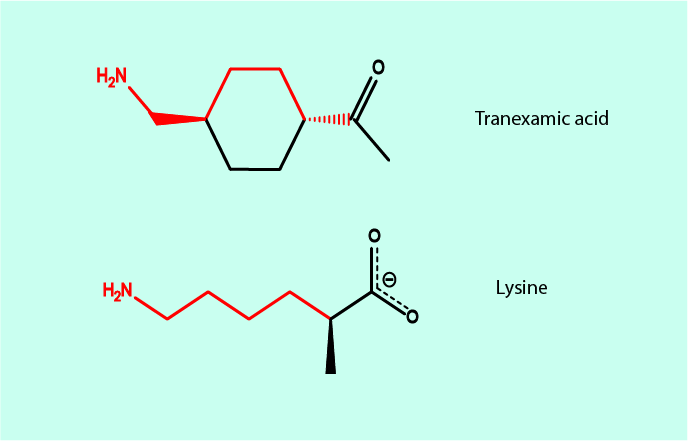Tranexamic acid
Tranexamic acid is a small organic molecule, chemically closely related to the essential (not made by the body in mammals) amino acid lysine (see Figure 1).

Tranexamic acid is a long established medicinal drug that is used to stop excessive bleeding. Accordingly, it has an important role in emergency surgery after major trauma (or childbirth, or any other events that may lead to excessive blood loss unless the bleeding can be stopped rapidly; this application includes some elective (non-emergency) surgery). It is used topically (as a mouthwash) in patients bleeding following oral surgery who have either a bleeding tendency or have received anti-platelet drugs (a type of drugs which hamper the first step in the formation of a blood clot, the clumping of blood platelets; examples of antiplatelet drugs are aspirin, clopidogrel, prasugrel or ticagrelor).
Tranexamic acid very efficiently stops bleeding by blocking the enzyme plasmin from acting as a fibrin-dissolving agent. Fibrin is an insoluble protein that is involved in blood clotting and in biochemical repair of damaged small blood vessels.